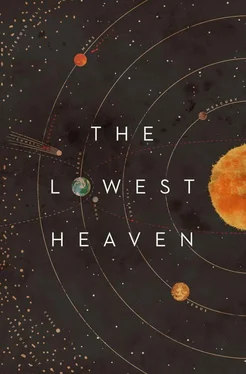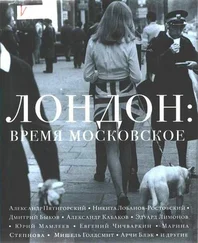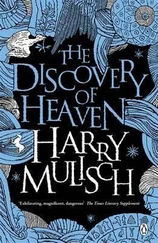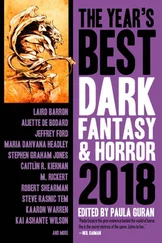“Then we are all satisfied. You will return to the Collective? Delay your departure by a couple of days, and the work will be packaged and delivered to you. It really is a trifling little thing.”
She had not been exaggerating, Oleg reflected.
He tugged more of the packaging away. The upper quarter of A Map of Mercury was now visible. But everything below that was concealed by a thin layer of protective material with a circular hole cut into it. He dug his fingers around the layer until it began to come free. He grew incautious. If he damaged the material, he could always say it had been that way when he found it.
Besides, he was starting to suspect that his masters would think very little of this offering no matter the condition in which it had arrived. It wasn’t the sort of thing they had been hoping for at all. Yes, it was a late Rhawn. But a globe? A Map of Mercury?
Something that literal?
The layer came free. He could see more of the globe now. There was in fact something a bit odd about it. Instead of continuing with the shape of the sphere he had been expecting, the object began to bulge in some directions and turn inwards in others. There was more packaging material to be discarded. He tugged it away with increasing urgency. There were two cavities opening up in one side of the no longer very spherical thing. Above the cavities was the fine swell of a brow ridge. Beneath the cavities◦– the eye-sockets◦– was the slitted absence where her nose would have been, and beneath that the toothy crescent of the upper jaw. There was no lower part.
He pulled the whole thing from its box. The colours of the top part, the emulation of the planet’s surface features and texturing, continued across every part of it. There were ochres and tangerines and hues of jade and turquoise. It had a fine metallic lustre, sprinkled with a billion glints of stardust. It was simultaneously lovely and horrible.
A Map of Mercury .
That was exactly what it was. She had not lied. Nor would this piece◦– this piece of her◦– dent Rhawn’s reputation in the slightest. No wonder she had needed a couple of days to make it ready. At the start of their conversation, ten percent of her had still been inside this skull.
Oleg had to smile. It was not exactly what he had come for, and not exactly what his masters had been after either. But what was art without an audience? She had made him her witness, and she had made art of herself, and she was still there, down on Mercury, having crossed twice.
Clever, clever Rhawn.
But then a peculiar and impish impulse overcame Oleg. He thought back to their conversation again. It was true, much of what she had said about him. He had been supine. He had tried and failed at art, and allowed himself to become the servant of powers to whom he was no more than an instrument. He had become spineless. He did what they told him◦– just as he was now executing Rhawn’s wishes.
A tool. An instrument.
A machine made of meat.
A little while later a little door opened in the side of Oleg’s spacecraft. It was a disposal hatch, the kind he used for waste dumps. A small grey nebula coughed out into vacuum. The nebula, for an instant, glittered with hints of reflectivity and colours that were not entirely grey.
Then it dispersed, and the ship continued on its merry way.

Days and nights aren’t even real; they’re a lie, a lie within a lie.
_________
A square glass plate negative of the Transit of Venus. Taken at Luxor in 1874 with one exposure of the planet Venus crossing the Sun’s limb.
I
The village of Hartmann stands on the high sorghum plains of Ishtar Terra, a lonesome area that other Venusians call “out there.” This area of the IT is known as the Lakshmi Planum. It is a little less that two and a half thousand kilometers across, and surrounded on all sides by mountains◦– the four main mountain ranges found on the planet. When, in 2392, planetary engineers finally liquified Venus’ core, kickstarting the planet’s dynamo and strengthening its magnetic field enough to maintain an atmosphere and make terraforming feasible, the decision was made to begin the planet-wide colonization process on Venus’ highland regions. Aphrodite Terra, warmer, larger and topographically rougher than its sister, was dedicated to mining. Ishtar Terra’s Lakshmi Planum, with its smooth plains and gently rolling wrinkle ridges, was deemed more suitable for agriculture. Following successful completion of the terraforming process, farming colonies were migrated to the IT from Earth. They dispersed to create widespread, albeit close–knit, communities, centered around small towns scattered seemingly at random across the planum.
Hartmann was founded in 2448, one of a hundred roughly nucleated villages developed on the IT by the Venusian terraformers. Farms, it had been decided, would most closely mimic the comfortable terrestrial existences that the colonists would be forsaking and create the powerful sense of community the terraformers believed necessary to their long-term colonial agenda: the creation of a self-sustaining second Earth.
Hartmann is a strange assortment of buildings, none more than three stories tall, and home to only about two hundred and fifty people. It is, generously, a suburb of Riccioli, a small city twenty–five kilometers away, but, by 2519, no one from Riccioli went to Hartmann, unless to visit relatives, and most of the citizens of Hartmann tended to have little interest in Riccioli◦– except Hartmann’s teenagers, of course, who were drawn to Riccioli, Hartmann’s only significant neighbor for hundreds of kilometers, like moths to a candle’s flame.
Despite the success of the terraforming project, and particularly the terraformers’ crowning achievement, the Overdome, an artificial layer between Venus’ thermosphere and mesosphere, Hartmann’s fortunes have risen and fallen with the same unpredictable regularity of any other farming community’s. Although the Overdome, which mimics a consistent, Earth–like cycle of day and night and maintains Venus’ reasonably Earth–like atmospheric conditions, assists in regulating temperature and average rainfall on the Lakshmi Planum, it was nevertheless designed to allow for ‘natural’ variations, with the result that the Lakshmi Planum is prone to drought. Fortunately, however, the variation of sorghum that is grown in and around Hartmann was designed to be spectacularly drought–resistant, and so the little community is well enough off, if not prodigiously wealthy. They live their lives solidly, predictably, and comfortably. “No better place to live,” says the sign on the road leading into town. And, indeed, it’s a refrain often repeated after Hartmann’s citizens win pie–making contests at the county fair, or following a satisfying meal at Mrs. McCallan’s Shumai Shack.
Until one morning in early November of 2519, few Venusians◦– in fact, few Ishtarians◦– had ever heard of Hartmann. At the time, those few souls awake in Hartmann at that hour saw it◦– the pale green light that warmed the dark sky and, all told, heralded the end of eight lives. But afterward the townspeople, no longer content with Hartmann’s comfortable isolation, began to take stock of their lives, their decisions. To wonder if, perhaps, there wasn’t a better place to live, after all.
Michelle Keck was forty–nine years old. A third–generation Venusian, she had been born in IT’s capital city, Helios, the only daughter of a banker and a lawyer. Despite her white–collar upbringing, Keck found herself drawn to Lakshmi’s wide–open spaces and, to the surprise of all, took her degrees in geoplanetary physics and agriculture. While at college she was introduced to Franz Van, the younger brother of a classmate, and found herself immediately drawn to the sensitive young man, whose retiring personality and love of the ancient poets contrasted so starkly with her own robust practicality. Following a swift courtship, the two married and left Helios upon her graduation. Keck took a farming apprenticeship in Riccioli and, within five years, had taken over management of one of Lakshmi’s larger farming collectives. Keck, however, wished to own her own farm. After saving up enough money to buy property outside Hartmann, Shelly and Franz packed up their young children and Franz’s beloved collection of ancient books and moved to the little town. They lived in a two–room apartment above the local grocery store while Keck oversaw the construction of their house, out on a parcel of land she’d taken to calling Blackacre. In fall of 2507, the family had installed itself in its new home, a large and comfortable farmhouse set far off the road, down an avenue of London plane trees, their growth artificially accelerated to provide shade within a year of planting.
Читать дальше













